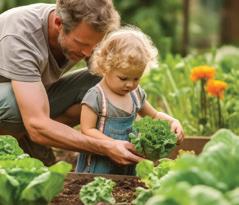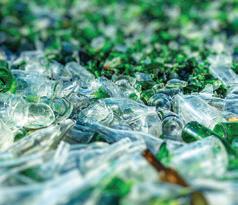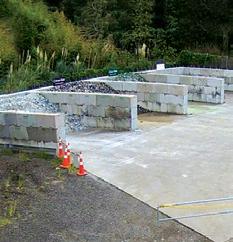Tāria te tuku para
OUR NEW RUBBISH AND RECYCLING SERVICES STARTING 1 SEPTEMBER 2023
Keep this booklet as a handy reminder

OUR NEW RUBBISH AND RECYCLING SERVICES STARTING 1 SEPTEMBER 2023
Keep this booklet as a handy reminder
Collected weekly
fruit & vegetables
meat & seafood bones
coffee grounds bread
rice & pasta
cooked food
dairy
egg shells
YES
flattened paper & cardboard
Collected fortnightly
Rinse containers clean. Put lids in rubbish.
plastic bottles & containers numbered 1, 2 & 5
tins & cans NO
✖ garden or pet waste
✖ plastic
✖ liquids
✖ tissue, paper, newspaper, paper towels or cardboard
✖ no bags or bin liners of any kind
Note: Any of these items will contaminate our composting process.
✖ lids
✖ glass
✖ plastics
3, 4, 6 & 7
✖ vaping gear
✖ polystyrene
✖ soft plastics
✖ takeaway coffee cups
✖ milk & juice cartons
✖ compostable items
✖ nappies & sanitary items
✖ batteries & e-waste
✖ aerosol cans
✖ medical waste
Food waste will be turned into nutrient-rich compost to grow more kai – a great circular outcome.
Think before you throw. Wrong items in the wrong bin can contaminate the whole recycling truckload and may mean it has to go to landfill. If in doubt, throw it out.

Collected fortnightly
YES
glass bottles
YES
milk & juice cartons
Collected fortnightly
Rinse bottles and jars clean. Put lids in rubbish.
NO
glass jars
✖ lids
✖ broken glass
✖ light bulbs or fluorescent tubes
✖ drinking glasses or cookware
✖ windows or mirrors
✖ medicine or vapeware
✖ perfume bottles
Did You Know ?
Glass is sent to Auckland where it is sorted and reprocessed into new glass bottles and jars.

plastic bottles & containers numbered 3, 4, 6 & 7
small lids, caps, pumps & spray triggers
nappies & sanitary items
takeaway coffee cups
wet wipes
polystyrene
broken glass, wrapped
NO
✖ batteries
✖ recyclables
✖ electronic devices
✖ fluorescent tubes
✖ hazardous items
✖ food waste
✖ building materials
✖ large household items
✖ paint
Rubbish collection will be funded through a pre-paid Pay As You Throw system. This means that you only pay when you put a bin out. You will need to buy $8 pre-paid tags from participating local retailers and attach them to your rubbish bin each time you put it out.


We operate seven Refuse and Recycling Transfer Stations – at Thames, Coromandel Town, Matarangi, Whitianga, Tairua, Pāuanui and Whangamatā.
From 1 September 2023, they’ll all be open to standard hours seven days a week including most public holidays:
DURING DAYLIGHT SAVING
Monday to Sunday 8.30am – 5.30pm
OUTSIDE OF DAYLIGHT SAVING
Monday to Sunday 8.30am – 4.30pm
All seven sites take household quantities of:
✓ items that would normally go in your mixed recycling bin, glass crate or rubbish bin.
In addition, they take:
✓ green waste
✓ metal waste
✓ tyres
The new food scraps service will result in less waste going to landfill. When food scraps break down in landfill they give off greenhouse gases like methane, which are harmful for the environment. Getting food scraps out of landfill and collected to make compost is a much better use of the resource and gets the goodness back into the soil, where it belongs.
CLOSED on Christmas Day, New Year's Day, Good Friday and until 1pm Anzac Day
✓ hazardous waste (batteries, chemicals, paint and more –see full list at www.tcdc.govt.nz/rts)
The sites do not take food waste.
For other items, such as old electronic goods, check out local resource recovery centres at tcdc.govt.nz/resourcerecovery
All of your recycling and food scraps collection will be paid for through a solid waste targeted rate. This makes it easier for all households to participate in waste reduction, resulting in less household waste going to landfill.
We are replacing single-use blue plastic bags for rubbish collection with a 140-litre wheelie bin collected fortnightly. The new 140-litre rubbish bin holds the equivalent of two-and-a-third blue pre-paid bags. Blue bags will not be collected kerbside from 1 September 2023. Instead, you can take them to your local Refuse and Recycling Transfer Station for free drop-off until your stocks run out.
Rubbish collection payment will be via a ‘Pay As You Throw (PAYT)’ system
You will need to buy a paper tag for $8 from a participating retailer and attach that tag to the rubbish bin lid before collection.
This PAYT system for rubbish bins means that each household is only paying for the rubbish they generate.
You’ll be allocated a bin collection day. This may be a different day than what you have currently. One week it’ll be a red week where your rubbish bin and your food scraps bin get collected. The following week will be a yellow week where your mixed recycling bin, glass crate and food scraps bin will get collected.
✓ Please keep lids closed and don’t overfill bins.
✓ Place bins with the logo facing towards the road.
✓ Put them as close as possible to the kerb with about half a metre between each bin so the trucks can pick them up.
If you’re in a flat, cul-de-sac or shared driveway, talk to your neighbours about where you can put your bins. Sometimes it may mean putting your bin outside a neighbour's property.
Please go to tcdc.govt.nz/bindays from August 2023 to download a collection calendar for your address.
Or visit one of our Council offices for a print-off of your collection calendar.
Or call us on 07 868 0200.
We’ll also be organising extra collections over the summer holiday season in some areas where there is significant increase in visitor numbers and we’ll be publicising these widely.
To reduce the possibility of bins blowing over in winds, or contamination from passers-by, please don't put your bins out the day before. Instead put your bin(s) out on your collection day, by 7.30am.
Soft plastics (such as plastic bags, wrapping and cling film) can be put in soft plastic recycling bins at key places in Thames, Whangamatā, Whitianga and Tairua.
Find out more at tcdc.govt.nz/softplastics
Yellow week